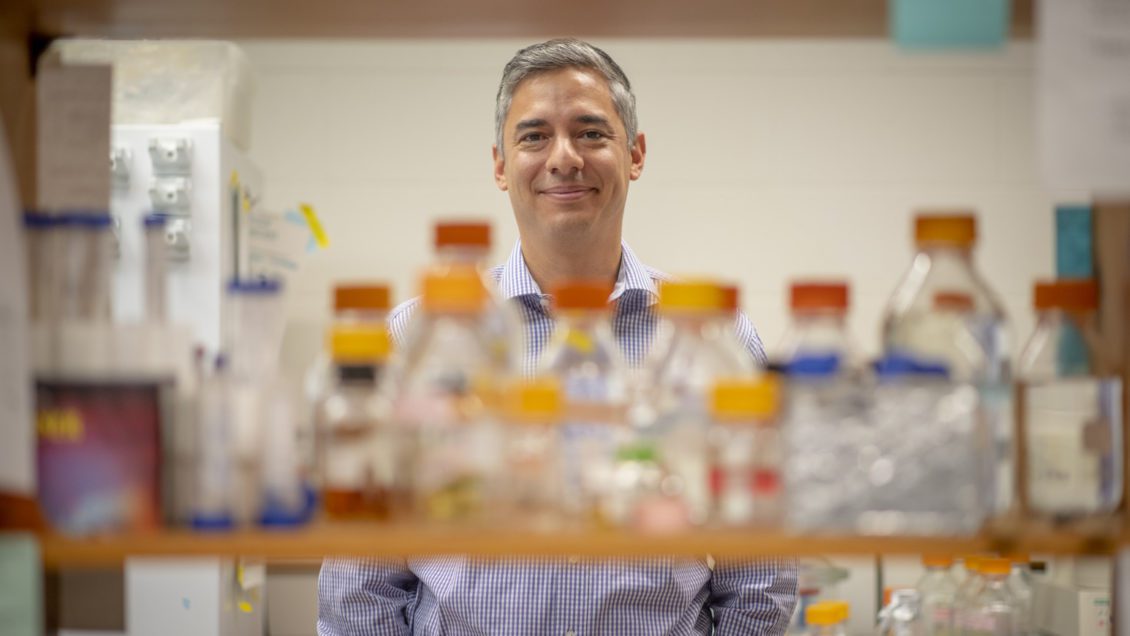Hugo Sanabria has received a National Institutes of Health grant to continue cancer research after his Clemson University School of Health Research (CUSHR) Faculty Fellowship.
The research is focused on the tumor-suppressing gene known as ARID 1a that encodes for a protein crucial in gene expression. His previous research has found that this gene is mutated in about 6% of every kind of cancer and about 45% of ovarian cancers. His research aims to understand pathogenic mutations for future guided patient-specific screening therapeutic approaches.

The project has received $443,128 of funding for three years. Sanabria is working with Dr. Jeff Edenfield from Prisma Health and Emil Alexov, Ph.D., a professor in the Clemson University Department of Physics and Astronomy.
“Our proposed study integrates biophysical studies, computational approaches, and single-molecule spectroscopy to characterize the stability, DNA binding, and structural dynamics of genetic variations in the ARID domain of the protein encoded by the gene ARID1a,” Sanabria said. “Understanding how pathogenic mutations impact the function of ARID1a are crucial for developing and implementing novel therapeutics and personalized medicine in the fight towards cancer.”
Sanabria, an associate professor in the Department of Physics and Astronomy and associated with the Medical Biophysics Program at Clemson, dived deep into this research to get results to data to pursue this NIH grant during his Clemson University School of Health Research (CUSHR) Faculty Fellowship. CUSHR Faculty Fellows serve as leaders in collaborative health research between Clemson and Prisma Health. Faculty Fellows are strategically embedded in a Prisma Health department, shifting their focus from their regular teaching duties to developing a comprehensive research agenda.
Crucial start
“The CUSHR fellowship was crucial for identifying the knowledge gap, defining a testable hypothesis and building the team,” Sanabria said. His fellowship was built upon research he started at Clemson in the Physics and Astronomy Department in January 2014. Sanabria’s research uses cutting-edge techniques to study the fundamental physical principles of life at the single molecule level, and using this knowledge to improve human health and well-being. For this award, the focus is in understanding the relationship between the structure, dynamics, and function of a specific gene, ARID1A, linked to several cancer types due to common mutations.
From early results, the team has identified five most common genetic variations in the ARID domain that induce various degrees of protein instability. The work was presented by Rajen Goutam, graduate student in Sanabria’s lab, at the 67th Annual Meeting of the Biophysical Society in San Diego in February of this year.
Get in touch and we will connect you with the author or another expert.
Or email us at news@clemson.edu

